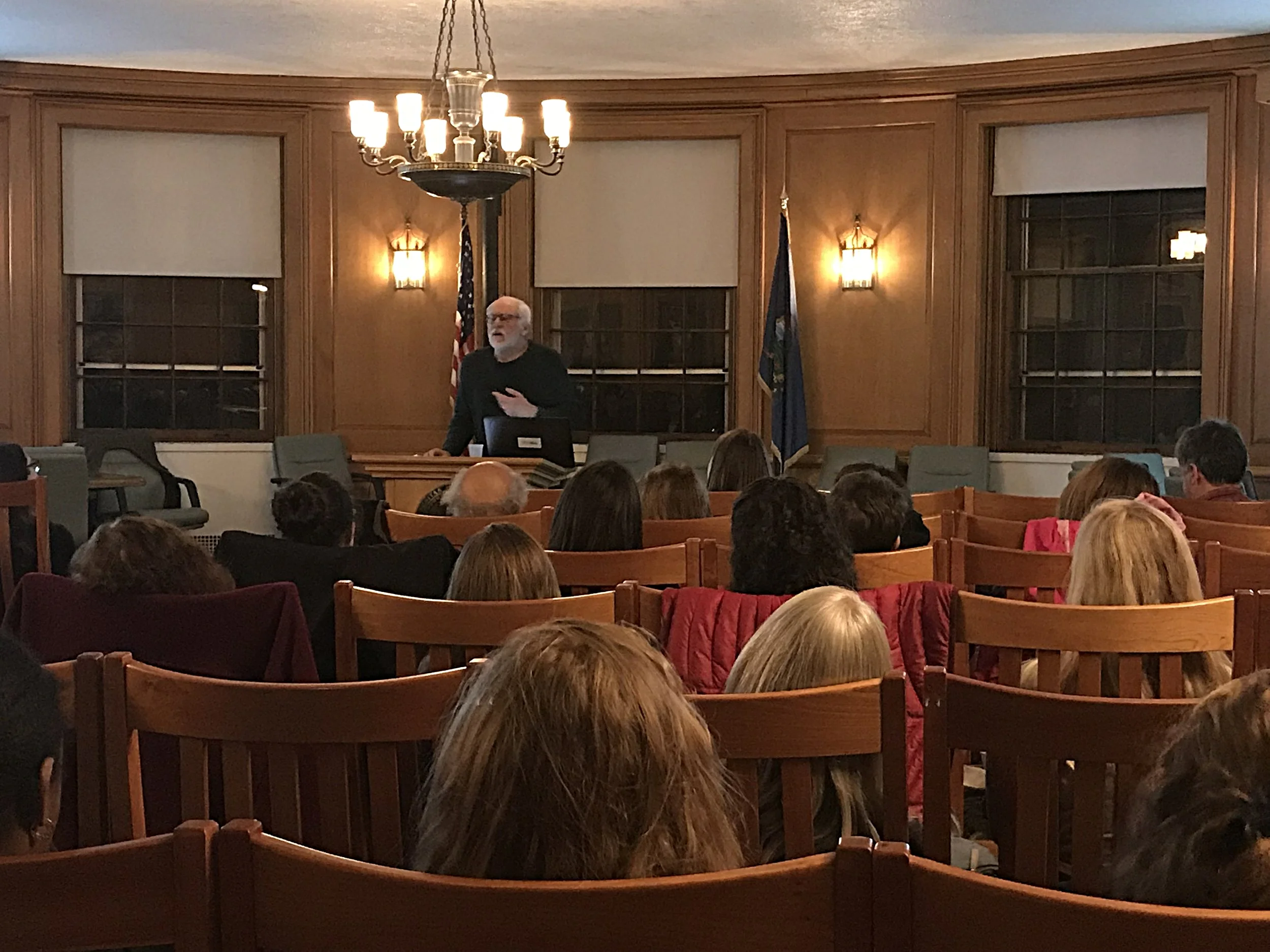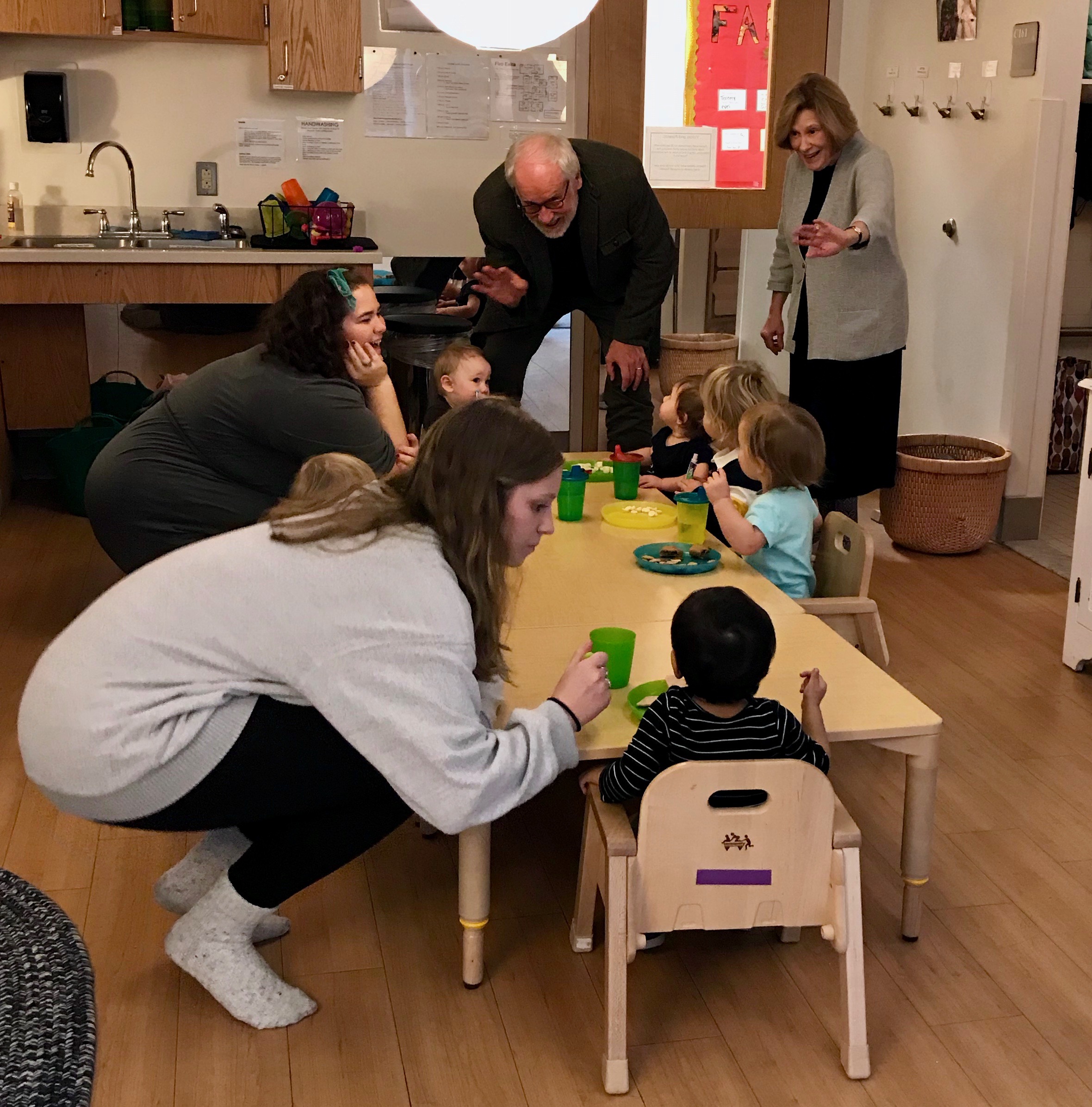Harold Gothson at the University of Vermont
It’s fitting that I write this on November 6, 2018, election day. (I voted happily and hopefully…what a privilege….)
I hosted Harold Gothson here in Middlebury, Vermont this past week. The Permanent Fund for Vermont’s Children had invited Harold to speak with them about his experience in Sweden where he and his colleagues have established a high functioning network of early childhood educators. I wrote about Louise’s and my experience with Harold in Sweden two years ago.
Harold has been an observer of and thinker about the Reggio Emilia approach since the 80’s and has integrated and adapted many of the principles and practices in his Swedish early childhood education context, especially with the collaboration of Anna Barsotti and Gunilla Dahlberg. Together they established the Swedish Reggio Emilia Institute.
The Permanent Fund for Vermont’s Children has declared their intention to develop a fully realized Strategy to achieve affordable access to high-quality child care for all Vermont families by 2025…a lofty goal, even audacious in these times. When I first read about this initiative, I emailed the director, Aly Richards, to ask for a meeting. At our meeting, after listening to Aly’s description of their work and their intentions, Louise and I volunteered our support.
Besides imparting, in three different gatherings, many good ideas about organization and professional development, Harold challenged the administrators and educators with whom he met to think more deeply about what they mean by “high quality.”
Harold pointed out that much of educational research on learning most often is discussed as neutral in value issues or is turned into methodological advice…group learning is looked upon as a method instead of being seen as a basic aim for the learning process.
Harold described his Swedish colleagues’ profound connection with Reggio Emilia.
In Reggio Emilia, we met not only a celebration of beautiful principles and declarations about children. We met a local society experiencing the idea of preschools as a democratic force that inspires the development of the identity of a city. It was an idea that inspired not only teachers but also local political thinking and acting, as well as empowering a new citizenship by developing participation of families in the everyday life of the preschools. Here we could see and touch a practice that showed that democracy is not fulfilled by the pure right of voting. Democracy demands that the most important role of a school is to support the possibility to formulate and respect your own viewpoints AND to put your viewpoints in to negotiations with your peers so that you can learn together…and learn the strategies that turn conflicts into energy.
Visting the University of Vermont Campus Children’s School
Listening to Harold as he addressed the different groups I wondered if his larger, more complex aspiration for education was too much for his audience? For instance, was it not grounded enough in the practical matters of curriculum development? Apparently I need not have worried. The responses generated from a post visit survey indicate understanding and motivation. Here are a few examples:
This is a societal shift we are trying to make - it’s so much bigger that a bill or a funding ask. We really need to change the cultural perspective of early childhood and the value we place on our children.
Our learning environments - this includes the children and the families - should be seen and treated as learning communities where we practice the skills needed to understand and actively engage in democratic society.
The outside world is the “school,” the school building is the lab or studio. Children’s best learning is directed by themselves, with teachers as guides…a learning community in which the adults put the emphasis on wondering rather than conducting.
You can learn more, volunteer, and invest in the Permanent Fund and this on going work. Vermont intends to lead the way with strategies and models for other states and communities. We need this kind of leadership! Thank you to the Vermont Community Foundation, to the Permanent Fund, and thank you to Harold Gothson for inspiring us all to think widely and broadly about the dynamic, big picture and values that are the foundation to this vision.



